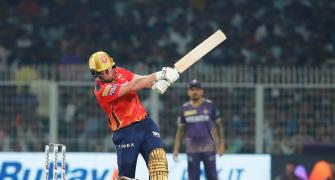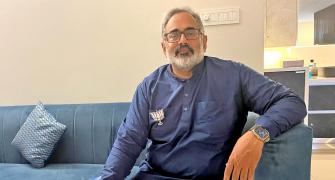 Mothers' Day is celebrated by everyone, even among the Indian Diaspora, with love and care. Children pamper their mothers with cosmetics, flowers, visits to restaurants, jewelry, etc. Are fathers similarly given unequivocal attention, are they attended to with affection on Father's Day?
Mothers' Day is celebrated by everyone, even among the Indian Diaspora, with love and care. Children pamper their mothers with cosmetics, flowers, visits to restaurants, jewelry, etc. Are fathers similarly given unequivocal attention, are they attended to with affection on Father's Day?
Likely not -- and even if the children do remember and decide to mark the day, the gifts that fathers get are standard, predictable and perfunctory -- almost as if 'here dad, I remember you too' is the governing mindset! Clearly, mothers have overtaken fathers in the hearts of their children.
Why so? Is it because children by nature identify themselves with mothers easily, or is it because fathers make themselves inconsequential? Or is it because mothers willingly take on every role expected of them, while it is easier for the fathers to give away the responsibility? Or is it because, having given birth, she is more suited to taking on the whole job of molding the child?
Once any of us who is a parent takes on the sole responsibility of rearing a child, we know what a demanding, difficult, and unpredictable job it is. It is fraught with unexpected turns, uplifting joys, and great disappointments. The parenting aspect never really ends; it only changes from time to time.
As kids, most of us who grew up in India with parents and extended relatives do not particularly remember asking parents to entertain us. We found our own play things, our own neighborhood friends, and games to occupy us. But these days, with smaller families (typically one or two children), and more of parents' involvement in every aspect of growing up, the children look up to a parent to entertain, guide and discipline them. Here the parent, mostly the mother, takes on the task of being the 'super mom'.
Maybe mothers have the capacity to multitask easier that than fathers. The more mothers are worldly-wise and savvy, the more they become the parent who answers all the needs of the children. Fathers relegate themselves to the role of the 'bread-winner' in the literal sense, and choose to make themselves absent in the day-to-day life of the children.
 |
Maybe it suits them to be less present, to just be around in case of need. The father likes to be left alone; simultaneously the new generation of mothers, who are proving their worth in the real-world job market, seem to relish their power in the home.
Indian parents and grandparents who emigrated from India came mostly from families where males dominated. But they themselves are changing colour and are seeing females as the planner, disciplinarian, and guide in younger Indian households. I wonder how this will affect the moulding of male and female children whose role models are reversed from the previous generations.
Maybe in 50 years, in the second half of this century, when the fathers begin to shoulder more day-to-day responsibilities, they will be pampered with personalised, meaningful gifts on Fathers' Day to make them feel genuinely appreciated and noticed!
Radha Balasubramanian is an associate professor and vice chair, department of modern languages, University of Nevada








